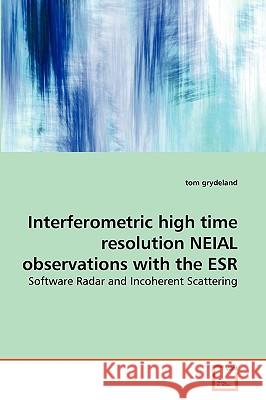Interferometric high time resolution NEIAL observations with the ESR » książka
Interferometric high time resolution NEIAL observations with the ESR
ISBN-13: 9783639214307 / Angielski / Miękka / 2010 / 164 str.
We know that the visible Aurora Borealis is structured on many different scales, down to a few tens of metres. We also know that certain types of aurora are associated with very strong and highly variable radar echoes. By using the EISCAT radars on Svalbard as an interferometer, we have found that the radio echoes from the auroral ionosphere is structured on a scale approaching that of the visible aurora, and simultaneously with it, but at far greater ranges. In this thesis we explain in some detail how these radar observations were made, we discuss what these observations imply for theoretical explanations, as well as a new framework for the design and implementation of software-defined radar and other radio science instrumentation, in particular the signal processing which made these observations possible.
We know that the visible Aurora Borealis is structured on many different scales, down to a few tens of metres. We also know that certain types of aurora are associated with very strong and highly variable radar echoes. By using the EISCAT radars on Svalbard as an interferometer, we have found that the radio echoes from the auroral ionosphere is structured on a scale approaching that of the visible aurora, and simultaneously with it, but at far greater ranges. In this thesis we explain in some detail how these radar observations were made, we discuss what these observations imply for theoretical explanations, as well as a new framework for the design and implementation of software-defined radar and other radio science instrumentation, in particular the signal processing which made these observations possible.











